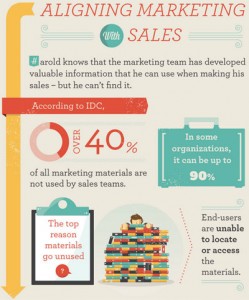
Human Resource Training involves training on all aspects related to the human resource function. There is no doubt that human resources are the most important resource in an organization. They are referred to as human capital, as employees are valuable assets for the company. The human resources were earlier called personnel management and were seen as a back-office job involving paperwork related to employee matters. Gradually, the scope expanded and today the HR function in an organization plays a very important role.
Why HR Training?
Team members belonging to the human resource functioning are not involved in just recruitment and staff welfare. There are a wide variety of functions they need to do. Talent management, employee retention, career development, and employee engagement are critical functions that an HR manager needs to perform in today’s world. Organizations would want the members of their HR team to be well-versed in all these skills. This explains the need for HR training.
Importance of HR Training
The importance of Human Resources online training in organizations can be understood by the wide variety of functions that they carry out. All these functions require specific skills that are needed to carry out the work effectively. Training can help impart these skills. While most HR executives would have studied HR-related functions at college, they would not be well-versed in practical applications. This is where training plays an important role. HR Training helps HR team members learn new skills and hone existing skills.
HR training would cover the following areas that are of crucial importance for organizations:
- Recruitment and Selection: This is the core work of HR. Employees need to be trained in areas of crucial importance like manpower planning. Best practices for recruitment needs to be imbibed by HR executives.
- Training Management: One of the key functions of HR is training. Employees need to be trained and it is the job of HR to ensure this happens. Competence mapping, needs identification, training planning, training conduct, and training evaluation are key skills HR executive needs, which they can get as a part of human resources professional certification.
- Compensation Management: Compensation is the salary and perquisites given to employees. HR has a key role in helping management to decide the compensation and in salary hikes, bonuses, etc. Best practices can be learned through training.
- Talent Management: The talent of employees is what drives them to achieve success. It is the job of HR to identify talent and nurture it for the benefit of the organization. HR staff needs to be trained in this key area.
- Career Development: HR’s job is not just to select an employee but it involves helping them grow in their career. Career planning, succession planning, and performance management are key aspects HR staff needs to know as a part of their work.
- Employee Retention: With competition, talented employees get lucrative offers from recruiters. HR staff needs to devise policies and programs to ensure employees are happy at their work. This will keep them satisfied so that they continue in the organization.
- Employee Engagement: One of the latest trends in HR is employee engagement. This involves bringing out the best in employees by making them emotionally connected to the organization. HR team members need to be trained on best practices in employee engagement so that they can implement it in their work.
- Exit Management: When an employee exits, there is paperwork to be completed. There are other things HR needs to do. This includes trying to find out reasons why an employee is leaving. This will help HR Managers to identify areas of improvement in their HR processes so that they can improve in the area of employee retention.
HR training for small business
All of the above show the importance of HR management in an organization. HR is no longer about paperwork and recruitment, it involves nurturing human capital and harnessing their potential, so the organization can benefit. HR’s job is to create a win-win situation for employees and the organization. Achieving this is no easy task and it requires a lot of work. HR team members need to be skilled to ensure they can do this.
For small businesses, this is crucial. Since they are small in number, they need to ensure that employees are managed well so goals can be achieved. Small businesses may not have a large HR team. This is why they must provide effective human resource training for their key people, so they can manage their people assets effectively.
Business & Finance Articles on Business 2 Community
(64)







